Noticed that someone from the time zone UTC+9:00 had googled for "clothing lobby" Korea. One really gets a feeling of having contributed a piece of knowledge on Korea for the googlers and browsers when of the nine hits from such a search, seven point to my documents, either in this blog or at my homepage (of which some are the one and the same entry).
"Clothing lobby" refers, at least in the texts that I've produced, to the affair back in 1999 when a wife of an industrialist in legal trouble lobbied (or at least was alleged having lobbied) the wife of the chief prosecutor and some politicians, who in turn would have demanded that the expenses of her clothing shopping be taken care of. (I've forgotten most of the details.) Part of the scandal were the politicians' wives' shopping rounds for example to the boutique of André Kim; Mr Kim later had to testify, in which one of the painful things for him was having to use his real name Kim Bong-nam... That was quite a scandal anyway at the time, and it served to erode the authority of Kim Dae-jung's government quite a bit, even though the legal consequences for those involved in the affair did not amount to much in the end, if my memory serves me correct.
And now some pieces of local commentary on the issue from back then.
In a marketplace clothing shop:It's quiet, no customers during the time I'm in the shop (a possible reason for that will come up later). The TV is broadcasting a session of parliamentary hearings about the so-called clothing lobby affair (ot lobi sakŏn), in which a wife of an industrialist is suspected of trying to buy favors for her husband by giving out expensive clothes to wives of ministers, and the latter are said to have demanded that the former pay their clothing shopping bill. – What's in the hearings worth watching, pol ke muŏ issŏyo? – Nothing special, they are just denying that they would have done anything wrong… before the IMF (economic crisis) this would not have been much, but now that there are so many people who are having a hard time… that's more of a high-class thing… – Doesn't concern one's own life much? – Yes. (the friend) – They are all thieves (rich and powerful people)… In a neighborhood supermarket:She has been watching the clothing lobby affair hearings. They tell only lies (in the hearings)… When they get to power they become all like that… the woman in this picture, the wife of the former minister of justice has received clothes worth of 100 million won according to a newspaper.
• A report by Hankyoreh21 on the affair from December 1999
Update.
For some yet unexplained reason, Oranckay had a note of the same topic the very same day, only that he started from the news about the recent designing exploits of André Kim, which made him recollect the "clothing lobby" hearings of '99.
To enliven my memory, I might try to present the outlines of the clothing lobby scandal, which had too many twists to stay fresh in my mind.
It all started with the murky dealings of the head of Shindonga group Ch'oe Sun-yông (Choi Soon-young?). The head of a company belonging to the group who had managed Choi's secret funds (비자금) tried to blackmail his boss about illegal transfer of funds to abroad. The man was arrested, but the prosecutor also got aware of the secret funds and money transfers. The prosecutor wanted to delay the investigation because Shindonga was expected to get a huge foreign investment - it was the "IMF time" back then - but could not due to pressure from civic groups.
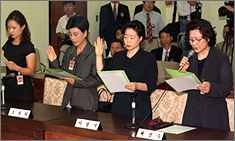
Women involved in the "clothing lobby scandal" giving testimony |
Mr Choi's wife Yi Hyông-ja wouldn't stand still but contacted the wife of the then chief prosecutor Kim T'ae-jông, Yôn Chông-hûi and some other wives of men of high position, through the proprietor of "La Sposa" (라스포사) Chông Il-sun. The husband of Mrs Yi was arrested anyway, and now Mrs Yi opened her mouth, and claimed that Mrs Yôn had actually demanded that clothes be bought to her.
Mrs Yi was charged in court for giving a false testimony (perjury? wijûng 僞證) in the parliamentary hearings, but she was acquitted (man this legalese is difficult) from charges finally in 2002.
The above is from a recent Chosun Ilbo article from Jan 25, 2005 which tells that the former Shindonga head Choi had been given a seven-year sentence for illegal transfer of funds abroad and for giving an illegal loan to a group-affiliated company.
The women who ended up involved in the affair had originally became acquainted in associations and informal gatherings to which high-class women took part, like "Wednesday Volunteering" (Suyobongsahoe), Ewha University Charity Bazaar and "Low Fence Club" (Najûn Ult'arihoe).
• Here is also a good description of the scandal in Korean.
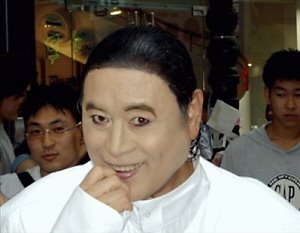 And about André Kim and the parliamentary clothing lobby hearings; it was said that the only thing which was revealed in the hearings was his real name, Kim Bong-nam. His appearance in the hearings also received most attention (which surely suited the others). But unlike what I wrote above, Andre Kim claimed in this long Shindonga Monthly piece from October 1999 that he has never felt ashamed of his real name and that he has always revealed that name ("bird bong 鳳, man nam 男) to newspaper and magazine interviewers. Also the writer of the Sindonga article tells so. (The Sindonga Monthly is not affiliated with the group of the same name, but belongs to the Donga Ilbo circle.) And about André Kim and the parliamentary clothing lobby hearings; it was said that the only thing which was revealed in the hearings was his real name, Kim Bong-nam. His appearance in the hearings also received most attention (which surely suited the others). But unlike what I wrote above, Andre Kim claimed in this long Shindonga Monthly piece from October 1999 that he has never felt ashamed of his real name and that he has always revealed that name ("bird bong 鳳, man nam 男) to newspaper and magazine interviewers. Also the writer of the Sindonga article tells so. (The Sindonga Monthly is not affiliated with the group of the same name, but belongs to the Donga Ilbo circle.)
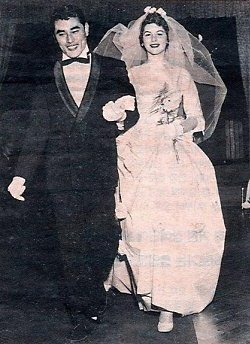
André Kim appearing as a wedding fashion model in a fashion show in Bando Hotel in Seoul in late 1950s |
The following is André Kim being questioned by none other than representative Chung Hyung-keun (Chông Hyông-gûn), who surely is using his more lenient questioning methods (from the same Sindonga article).Rep. Chung: Mr Kim Bong-nam!
Kim Bong-nam: Yes.
Rep Chung: What is your age at the moment?
Kim Bong-nam: I was born in 1935.
Rep Chung: How did you get the name 'André Kim'?
Kim Bong-nam: When I was studying design in the 1960s, a diplomat from the French embassy recommended that in order to become a world-class (segyejôk) designer I should use a name like 'André' instead of my Korean name. So I became André Kim.
Rep Chung: That was a good decision (chal hasyôssûmnida). So, on December 16, Yôn Chông-hûi came to your boutique, Mr André Kim?
But that's not all there's to tell about the names of André Kim. The Sindonga tells further that in the 1960s he used the name Kim Sông-jin. That's how he registered himself in the educational facility where he studied clothes back then. Things had not been going well for him, so his mother thought that perhaps the name Bong-nam was bad, so she gave him the name Kim Sông-jin. He nevertheless did not become comfortable with that name, and as he was suggested the name André Kim, and with the opening of the boutique (or salon) by that name, he's been known that way ever since.
Update, October 11, 2006
Here are two newsreels of Andre Kim fashion shows from the 1960s.
This one presents summer clothes (link to the page at mncast.com)
(Via Ainslie Days)
This one presents winter clothes (chasôn ûisang palp'yohoe) (link to the page at mncast.com).
Categories at del.icio.us/hunjang: Koreansociety ∙ women-men ∙ people ∙ Koreanpolitics ∙ culturalhistory |



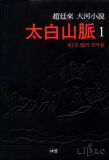
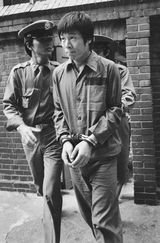
 The peddlars who took care of most of the circulation of goods and merchandise in the country during the Chosôn (Joseon) era are nowadays known as pobusang (褓負商). There were actually two kinds of these, posang (褓商) and pusang (負商); the former carried and sold mostly small wares and the latter bigger merchandise like brassware and other bigger kitchenware. Now we learn from the site
The peddlars who took care of most of the circulation of goods and merchandise in the country during the Chosôn (Joseon) era are nowadays known as pobusang (褓負商). There were actually two kinds of these, posang (褓商) and pusang (負商); the former carried and sold mostly small wares and the latter bigger merchandise like brassware and other bigger kitchenware. Now we learn from the site 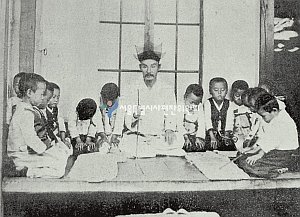 얼마 전에 어떤 한국으로 파견될 회사원헌테 한국어를 가르쳐 줄 사람 좀 소개할 수 없느냐는 부탁이 왔어요. 소개할 만한 사람을 생각해 보겠다고 약속하면서 왜 그런 돈을 남한테 주겠느냐는 마음이었지. 그한테 연락을 하고 내가 했으면 어떠냐고 물었더니 괜찮다고. 그 다음엔 얼마나 받아야 하는 고민. 우리같은 인문, 사회학계의 사람들은 몸값을 잘 모르니까 이럴 때 항상 고민이 생기는 것이지. 나의 한국어 실력을 싸게 팔면 안 되겠다 싶어서 좀 큰 돈을 요구했다, 수업료도 회사에서 낸다면서. 먼저 좀 비싸다고 그랬지만 나는 먼제 얘기한 액수를 부드럽게 고집했다. 지금 그와 그의 여자친구집에 일주일 2-3번 다니고 있다. 좋은 거는 사람이 둘 다 마음이 좋고 배울 의지도 잘 보여주고 있다.
얼마 전에 어떤 한국으로 파견될 회사원헌테 한국어를 가르쳐 줄 사람 좀 소개할 수 없느냐는 부탁이 왔어요. 소개할 만한 사람을 생각해 보겠다고 약속하면서 왜 그런 돈을 남한테 주겠느냐는 마음이었지. 그한테 연락을 하고 내가 했으면 어떠냐고 물었더니 괜찮다고. 그 다음엔 얼마나 받아야 하는 고민. 우리같은 인문, 사회학계의 사람들은 몸값을 잘 모르니까 이럴 때 항상 고민이 생기는 것이지. 나의 한국어 실력을 싸게 팔면 안 되겠다 싶어서 좀 큰 돈을 요구했다, 수업료도 회사에서 낸다면서. 먼저 좀 비싸다고 그랬지만 나는 먼제 얘기한 액수를 부드럽게 고집했다. 지금 그와 그의 여자친구집에 일주일 2-3번 다니고 있다. 좋은 거는 사람이 둘 다 마음이 좋고 배울 의지도 잘 보여주고 있다.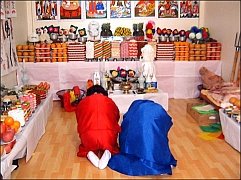
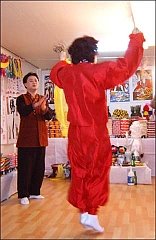
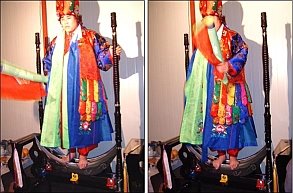

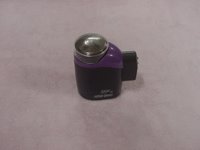
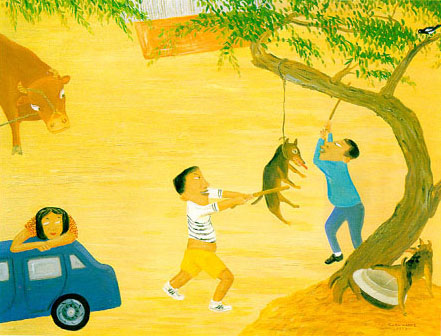

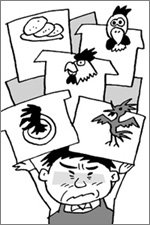 I'm not really sure what service this kind of infomercial articles serve except for the publicity for the companies introduced and for some pieces of info on business opening cases. Late last year
I'm not really sure what service this kind of infomercial articles serve except for the publicity for the companies introduced and for some pieces of info on business opening cases. Late last year 

